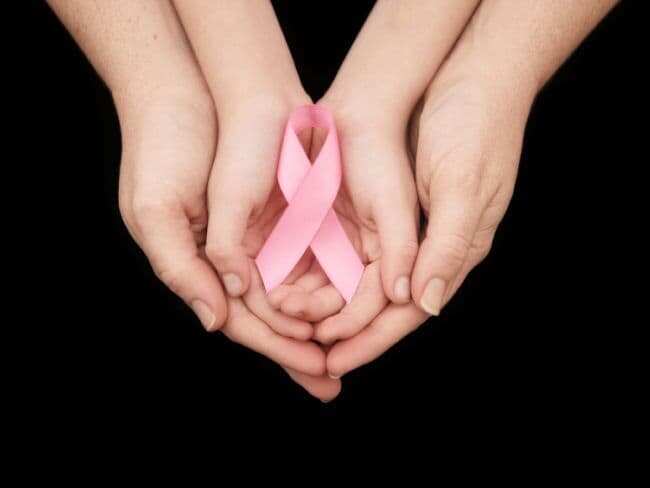National Cancer Awareness Day: Breast Conservation Surgery involves the removal of the breast tumor along with a rim of the normal breast tissue or lymph nodes surrounding it. How much is taken out depends on factors like the size and the location of the tumor.

Lumpectomy removes tumor while maintaining the normal appearance of the breast
HIGHLIGHTS
- Lumpectomy is preferred option for early stage breast cancer
- This surgery allows patients to keep most of their breast
- Many patients would need radiation therapy after the surgery
National Cancer Awareness Day 2020: November 7 is observed as National Cancer Awareness Day. Breast cancer is the most common cause of cancer among women, impacting 2.1 million women each year, and is also the cause of the highest number of cancer-related deaths among women. In India, the cases are steadily increasing steadily as a result of increased life expectancy, urbanization and changing lifestyles. Although, while breast cancer rates are higher among women in more developed regions, the cases are increasing in nearly every region globally each year. Thus, early detection is crucial for improving outcomes and survival. Early diagnosis and screening are two early detection strategies for breast cancer. Early diagnosis strategies focus on providing timely access to cancer treatment and improving access to effective diagnosis services. Screening consists of testing before any symptoms appear. Some of the breast cancer screening tools include mammography, clinical breast exam and breast self-exam.
Breast Cancer and Lumpectomy: What you need to know
If the tests confirm breast cancer, the oncologist will develop a treatment plan to treat the cancer. The most common surgery for breast cancer is modified radical mastectomy (MRM), which completely removes the breast with or without reconstruction. The other option is breast conservation surgery (BCS), also known as lumpectomy, which only removes the tumor and leaves the rest of the breast intact. According to a study published in the Journal of Global Oncology, patients who undergo mastectomy (MS) may have significantly decreased survival in comparison with patients opting for breast-conserving surgery (BCS).
Also read: National Cancer Awareness Day: Lifestyle Choices That Can Help In Reducing Your Risk Of Cancer
BCS involves the removal of the breast tumor along with a rim of the normal breast tissue or lymph nodes surrounding it. How much is taken out depends on factors like the size and the location of the tumor. BCS is a good option for those patients with early-stage breast cancer. This surgery allows patients to keep most of their breast, but it is likely that a lot of the patients would need radiation therapy after BCS. Some women might also go for other treatments like hormone therapy or chemotherapy. Women who have undergone mastectomy for early-stage cancers are less likely to need radiation, but they may also be referred to a radiation oncologist for evaluation depending on their situation and case. A BCS is not advisable for those who have conditions that do not permit radiotherapy treatment or if the patients themselves are against radiotherapy.

Lumpectomy allows patients to keep most of their breast
Photo Credit: iStock
Also read: Blood Cancer: Importance Of Timely Diagnosis, As Told By An Expert
A lumpectomy removes the tumor while simultaneously maintaining the normal appearance of the breast, and is usually performed under general anesthesia. Precise localization of the tumor is important to successfully conduct the procedure and to minimize the amount of breast tissue that needs to be taken out. Side effects of the surgery can include bleeding, infection, pain, temporary swelling, tenderness, formation of hard scar tissue at the surgical site, change in the shape and appearance of the breast, or nerve pain in the chest wall, armpit and/or arm.
A lumpectomy is usually performed in an outpatient surgery center, and doesn't necessarily require an overnight stay in the hospital. In most cases, the patients are able to carry on most of their basic activities after going home and are often able to return to their regular activities within two weeks. However, some women may need more assistance at home depending on how extensiveness of the surgery. It is also important for patients to ask their doctors to guide them for post-treatment management and care that suits their requirements and lifestyles. In addition to this, whether the person has undergone breast cancer treatment or hasn't been diagnosed with cancer, it is advisable to get check-ups done at regular intervals. An early detection will ensure timely treatment and care and increase the chances of combatting the cancer successfully.
Also read: Breast Cancer Awareness Month 2020: Know The Importance Of Breast Self-Exam And Early Diagnosis
(Dr Sandip Bipte, Consultant, Breast Cancer Surgery, Apollo Cancer Centre, Navi Mumbai)
Disclaimer: The opinions expressed within this article are the personal opinions of the author. NDTV is not responsible for the accuracy, completeness, suitability, or validity of any information on this article. All information is provided on an as-is basis. The information, facts or opinions appearing in the article do not reflect the views of NDTV and NDTV does not assume any responsibility or liability for the same.
DoctorNDTV is the one stop site for all your health needs providing the most credible health information, health news and tips with expert advice on healthy living, diet plans, informative videos etc. You can get the most relevant and accurate info you need about health problems like diabetes, cancer, pregnancy, HIV and AIDS, weight loss and many other lifestyle diseases. We have a panel of over 350 experts who help us develop content by giving their valuable inputs and bringing to us the latest in the world of healthcare.














